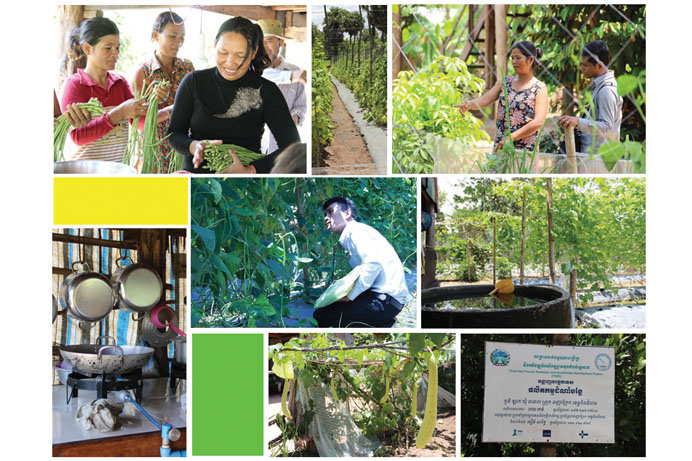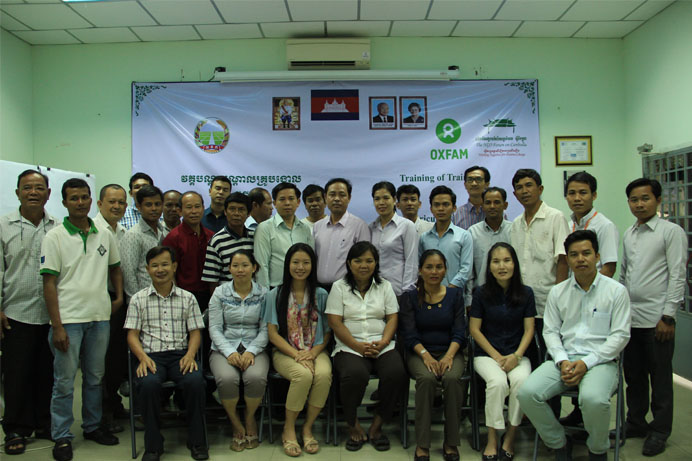
July 01-03, 2015: Understanding the need of agriculture skills to improve the livelihood opportunity, NGO Forum on Cambodia (NGOF) in coordination with department of Plant Protection Sanitary and Phytosanitary, General Directorate of Agriculture (GDA) and Ministry of Agriculture Forestry and Fisheries (MAFF), organized a three-day training on “Training on Trainer (ToT) on Good Agricultural Practices (GAP)” funded by Oxfam through of Influencing for Sustainable Natural Resources Governance Project.
Thirty three participants (07 females) comprised of representatives from local and international NGOs and farmers from fourteen cities/provinces.
The sessions aimed at the following objectives:
- To Build more understanding on GAP in order to control the products quality for post-harvest and safety of food, vegetable and fruits production.
- To enhance the capacity of trainers in order to provide training to farmers and producers on GAP at grassroots level.
- To provide IEC materials to trainers to support their training on GAP
- To visit the real practices of farmers/producers that applying GAP
“We know approximately 80% of Cambodians lives in rural areas and relying on agriculture work, since Cambodia is an agrarian country with its economic foundation largely dependent on the agriculture sector,” said Dr. Tek Vannara, NGOF’s Executive Director. “Hence, we conducted this ToT to the significant representatives with the strong expectations that participants will bring back the new skills and knowledge they learned to contribute it to their communities especially to find the possible ways to be preparedness to ASEAN Economic Community (AEC) Integration in December 2015 officially.”
The third training day followed by the field demonstration on GAP of Tonle Sap Poverty Reduction and Smallholder Development TSSD Project in Ponhea Krek, Thbong Khmum province, where trainees had chance to witness the best agriculture practice in actual situation together with the project introduction by the Officer of the Provincial Agricultural Province.
Sun Phalla, a program manager of Environmental Protection and Development Organization (EPDO) said that he really appreciated the sessions and the expectation was met following a three-full-day participation. “It is critically essential, whereby I could learn what I haven’t known before, particularly, GAP that we can use to standardize the quality of our productions within the pre-post-harvest of doing farming. Additionally, it guides us several steps to better farming just as; the selection of seedling, farming land preparation, natural fertilizer usage, water type usage, reduction of chemical use, natural poisonous compound usage, and the likes,” he added.
Through the tri-day training, participants have learned many best agricultural practices as following:
- Be aware of the regional and world potential, in which improving the quality and food security system demands, countering from the beginning of the production, to harvesting and and post-harvesting.
- Understand about network across the fruit and vegetable supply chain and the customers’ demands
- Clearly understand about the food security is (an assurance of food quality and security based on GAP supported by the regionally speeding ASEAN GAP guideline.
- Learn about the impact of food poisoning that might arouse within the period of production work, harvesting, or even post-harvest (chemical toxins spreader, biological danger, and physical danger).
Please click here to download an action Plans on Good Agricultural Practices (GAP) that developed by participants during the training (in Khmer).
